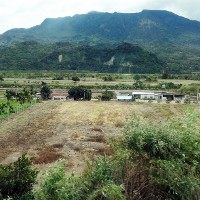Environmental resources and development (ERD)
One way of informing and helping to create sustainable development policies is by understanding the many complex interactions that take place between the natural environment and human activities, for example, agricultural food production.
Producing more to feed a growing population without increasing the contribution of agriculture and land use change to greenhouse gas emissions (GHGs) is a significant challenge. This challenge has increased with growing prosperity in developing countries, as dietary habits around the world shift toward greater consumption of animal-based protein.
In 2013 ERD research looked at livestock production systems and the adaptation responses of agriculture to climate change. European climate and energy targets for 2030 came under review. Work on REDD+ continued, and the group looked in depth at food security and deforestation trends in two geographical areas: Eastern Asia and the Congo Basin, respectively.
Livestock production systems dataset for global sustainability assessments
Ecosystems Services and Management (ESM) researchers collaborated with partners to construct a global dataset describing all livestock production systems in terms of feed requirements, milk and meat productivity, and GHG emissions intensity. More
Adaptation response of agriculture to climate change - Model comparisons
The Ecosystems Services and Management (ESM) Program actively participated in two comparison exercises with the GLOBIOM model, looking at how the model reacts to different scenarios of climate change. More
European climate and energy targets for 2030
For the EUCLIMIT Project ESM researchers contributed policy-related data and model results to illustrate the potential benefits and costs of various climate policies. More
Modeling future deforestation trends in the Congo Basin
Results from IIASA's global land use model GLOBIOM model, adapted to the Congo Basin region - the CongoBIOM model - were used to inform a World Bank study on future deforestation trends in the Congo Basin published in 2013. More
Supporting landscape-scale planning for REDD+
IIASA co-hosted a session at the Global Landscapes Forum (GLF) conference to coincide with COP19 in Warsaw. More
Climate change impact on food security in East Asia
Ecosystems Services and Management (ESM) researchers studied climate change impacts on food security in four East Asian countries - China, Japan, South Korea, and Mongolia. More

Research program








